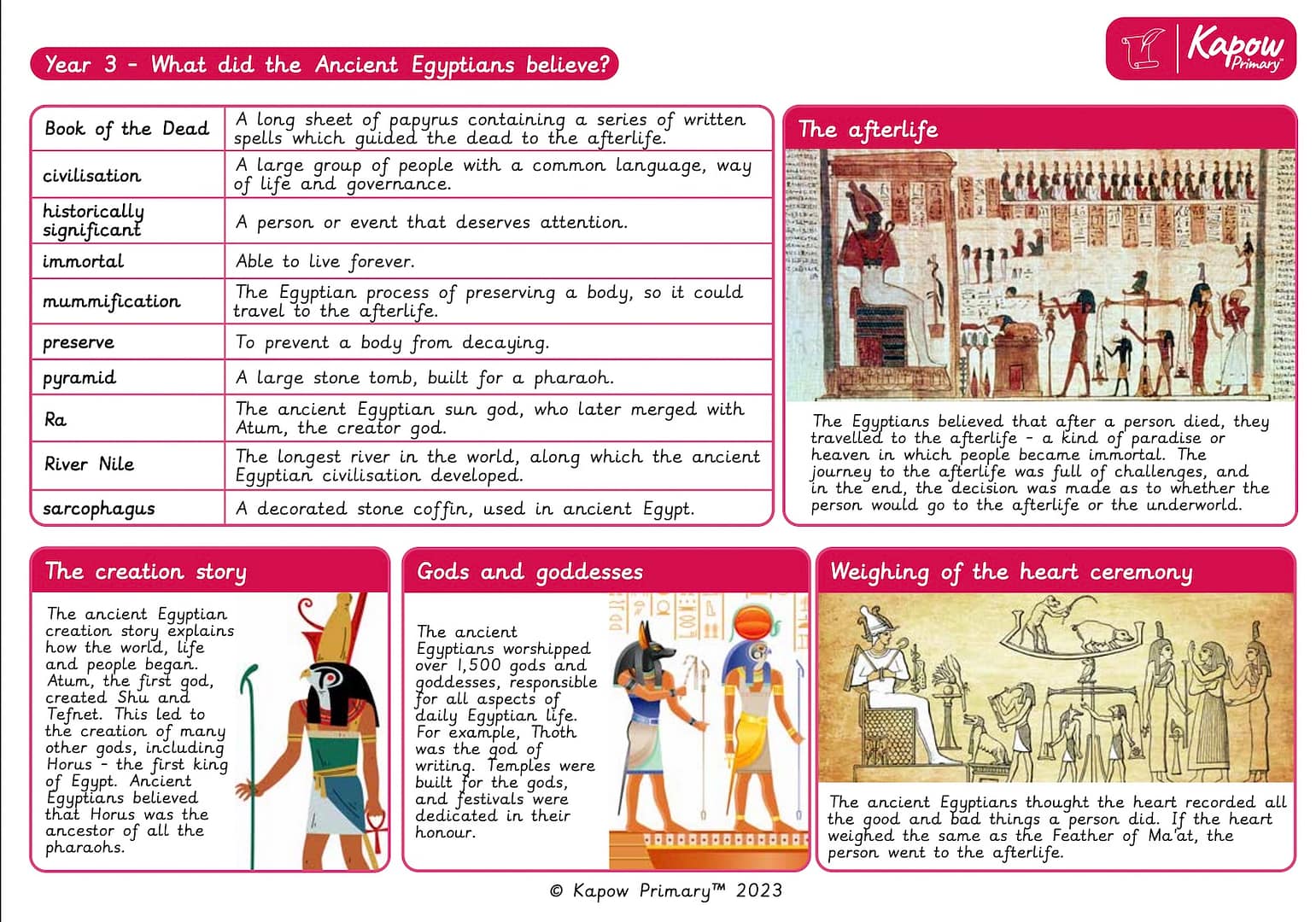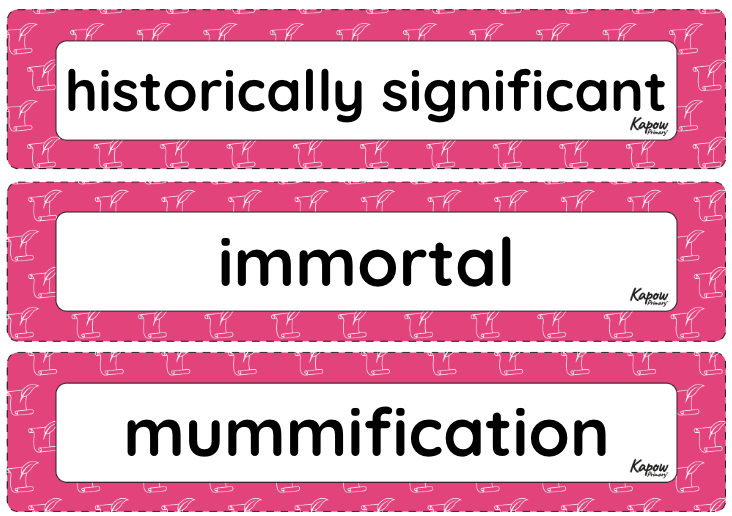Y3/4 (B): What did the Ancient Egyptians believe?
Use this unit hub to inform your medium-term plan.
Unit outcomes
Pupils who are secure will be able to:
- Identify the ancient civilisations and key periods in ancient Egypt.
- Describe the physical features of Egypt.
- Explain the Egyptian creation story.
- Identify the characteristics of important gods or goddesses.
- Explain why the pyramids were built.
- Identify the stages and challenges of building a pyramid.
- Explain the links between ancient Egyptian beliefs and mummification.
- Name sources that can be used to find out about ancient Egyptian beliefs.
- Explain some Egyptian beliefs about the afterlife.
Suggested prior learning
Y3/4 (B): How have children’s lives changed?
Get startedLessons
Y3/4 (B): Lesson 1: Who were the Egyptians and when did they live?
- To know when and where the ancient Egyptians lived.
Y3/4 (B): Lesson 2: What did the ancient Egyptians believe?
- To explain the importance of the Egyptian gods and goddesses.
Y3/4 (B): Lesson 3: Why and how did the Egyptians build the pyramids?
- To evaluate the challenges of building an Egyptian pyramid.
Y3/4 (B): Lesson 4: How and why did the Egyptians mummify people?
- To explain how and why the Egyptians mummified people.
Y3/4 (B): Lesson 5: What does the Book of the Dead tell us about ancient Egyptian beliefs?
- To make inferences about Egyptian beliefs, using primary sources.
Y3/4 (B): Lesson 6: What did the ancient Egyptians believe?
- To evaluate significant ancient Egyptian beliefs.
Key skills
Related content
Resources
Unit resources

History
Knowledge organiser – History Y3: What did the ancient Egyptians believe?
Aimed at pupils, a double page document that gives key facts and definitions from the 'What did the ancient Egyptians…

History
Vocabulary display: What did the Ancient Egyptians believe?
A display version of the key vocabulary from the What did the Ancient Egyptians believe? unit.
Cross-curricular opportunities
Geography: Human and physical geography, Geographical skills and fieldwork
Religion and worldviews
English: Spoken language

